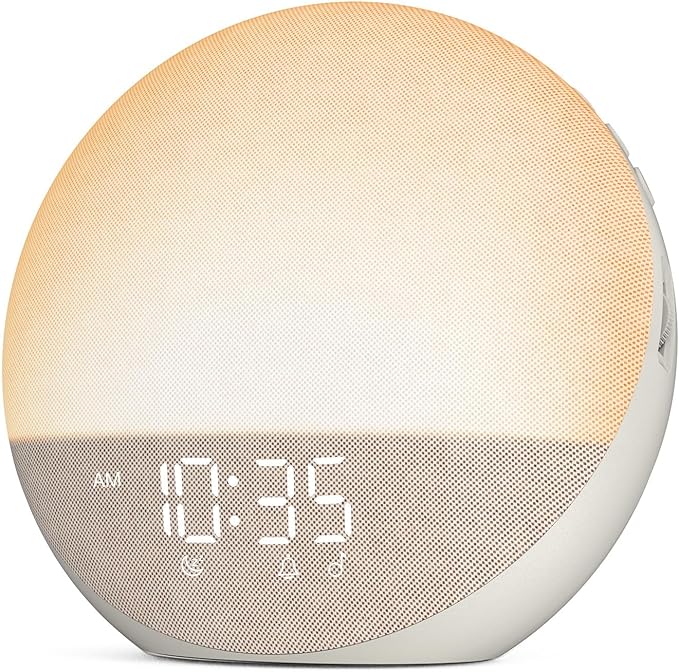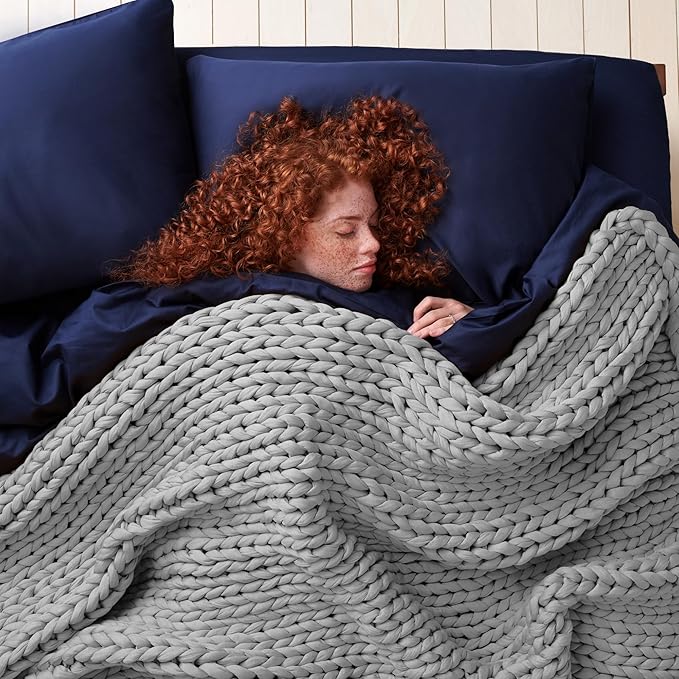- This guide covers a comprehensive review of Sleep Disorder Treatment Options For Adults: Your Comprehensive Guide to Better Sleep.
- We explore evidence-based therapies including Cognitive Behavioral Therapy, medications, natural remedies, lifestyle changes, and complementary approaches.
- Personal insights, deep-dive field notes, and peer-reviewed research findings make this a hands-on resource for anyone seeking better sleep.
- Additional internal resources are provided to support your journey towards optimal sleep health.
Sleep Disorder Treatment Options For Adults: Your Comprehensive Guide to Better Sleep
Hi there, I’m excited to share my personal journey along with professional insights on sleep disorder treatment options for adults. After grappling with the challenges of insomnia, sleep apnea, restless legs syndrome, and more throughout my career and life, I’ve distilled the methods that truly work into this comprehensive guide.
This article is meant to help you navigate the maze of sleep solutions—from structured behavioral therapies to natural and lifestyle approaches—all described through engaging personal anecdotes and clinical expertise. By the time you finish reading, you’ll have a toolbox filled with actionable strategies to reclaim your sleep and improve every aspect of your health.
Understanding Sleep Disorders and Why Treatment Matters
I’ve encountered countless adults in my practice who felt overwhelmed by sleep disorders. Sleepless nights not only sap energy but also affect mood, productivity, and overall quality of life. Mastering your sleep routine is not just about feeling rested; it lays the foundation for better physical, mental, and emotional health.
The Impact of Poor Sleep
When you aren’t getting enough quality sleep, the consequences extend far beyond feeling tired. My personal journey and clinical experience have shown me that:
- Energy Levels Drop: Constant fatigue makes it hard to keep up with daily responsibilities.
- Mood Swings Increase: Irritability and stress become all too frequent.
- Productivity Suffers: Tasks pile up and performance declines.
- Relationships Strain: Sleep-related mood issues can affect your interactions with family and colleagues.
When I was struggling with chronic insomnia, I felt trapped in a cycle of frustration and despair. It wasn’t until I began to explore structured interventions and lifestyle adjustments that I noticed a dramatic change. I invite you to discover these solutions that will help you break free from poor sleep habits.
Why Sleep Disorder Treatment Options For Adults: Your Comprehensive Guide to Better Sleep Matters
The strategies discussed in this guide are not derived from generic advice; they’re a reflection of nearly 15 years of experience in clinical research, patient care, and personal experimentation. Whether you are new to the concept of sleep disorder treatment or have tried several approaches without success, the techniques here have been proven to improve sleep and overall quality of life.
I encourage you to examine the advice through the lens of your own experiences. As you navigate through the upcoming sections, remember that every sleep challenge is unique—so tailor these insights to fit your personal needs.
Cognitive Behavioral Therapy for Insomnia (CBT-I): A Cornerstone of Sleep Disorder Treatment Options For Adults
One of the most effective treatments I’ve come across in my practice is Cognitive Behavioral Therapy for Insomnia, or CBT-I. This method transformed my own sleep patterns and has helped many patients overcome chronic sleep issues.
What Is CBT-I and How Does It Challenge Poor Sleep Habits?
CBT-I focuses on breaking the cycle of negative thoughts and habits that sabotage your sleep. Rather than gravitating towards reliance on medications, this therapy empowers you to develop healthier sleep behaviors and reframe unproductive thought patterns. In my own journey, the shifts in mindset helped me see sleep as a natural, restorative process rather than a source of anxiety.
Key components of CBT-I include:
- Sleep Education: Learning about the natural sleep cycles deepens your understanding of what quality sleep looks like.
- Stimulus Control: Associating your bed strictly with sleep (and intimacy) creates strong, positive cues for sleep.
- Sleep Restriction: Limiting your time in bed forces you to consolidate sleep and improves sleep efficiency.
- Relaxation Techniques: Integrating methods like deep breathing, progressive muscle relaxation, and meditation into your pre-sleep routine reduces anxiety and paves the way for sleep.
By challenging the belief that you “must” get eight hours every night, CBT-I has taught me to embrace the idea that quality sleep, even if in shorter durations, is restorative and deeply valuable.
Medications in Sleep Disorder Treatment Options For Adults: A Targeted Approach When You Need It
While behavioral changes like CBT-I form the backbone of effective sleep therapy, there are occasions when medications can provide immediate relief. I’ve seen patients benefit from short-term use of sleep aids which can help recalibrate their sleep patterns until lifestyle and behavioral changes take hold.
Prescription and Over-the-Counter Sleep Aids Explained
Medications for sleep disorders generally fall into two main categories:
- Prescription Sleep Aids: Drugs such as benzodiazepines and non-benzodiazepine hypnotics are valuable for severe sleep disturbances. These are typically short-term solutions that must be closely monitored by a healthcare provider.
- Over-the-Counter Options: Natural supplements, like melatonin, help adjust the sleep-wake cycle. However, even these should be used under medical guidance to avoid unwanted side effects or interactions.
Personally, I always stress the importance of tailored treatment. What works for one person may not work for another, making it crucial to have a trusted professional who can guide you through the risks and benefits of each treatment option.
Lifestyle Changes: Simple Tweaks for Transformative Sleep Disorder Treatment Options For Adults
Effective changes rarely require drastic overhauls—in many cases, small, deliberate adjustments can produce big improvements in sleep quality. Many of the tips shared here are rooted in habits I adopted myself after years of trial and error.
Establishing a Consistent Sleep Schedule
One of the most straightforward yet powerful changes you can make is setting and sticking to a fixed sleep schedule. This helps regulate your body’s internal clock and enhances sleep efficiency.
- Set Regular Bedtimes: Commit to a consistent bedtime and wake-up time every day—even on weekends—to normalize your circadian rhythm.
- Use Alarms for Sleep Reminders: It may sound unusual, but setting an alarm for your bedtime can reinforce your routine.
Creating a Relaxing Bedtime Routine
A calming pre-sleep routine sets the stage for a night of restorative rest. Over time, I discovered that consistency in these habits greatly influenced my sleep quality.
- Avoid Screens: Limit exposure to screens at least one hour before bed. Blue light diminishes melatonin production, which is essential for sleep.
- Engage in Relaxing Activities: Reading, listening to soothing music, or taking a warm bath can help transition your mind and body into sleep mode.
Optimizing Your Sleep Environment for Maximum Rest
Think of your bedroom as a sanctuary—a place solely for restorative sleep. Here are some tweaks that helped me create my sleep haven:
- Invest in Quality Bedding: A supportive mattress and comfortable pillows can make a remarkable difference.
- Ensure Darkness and Quiet: Use blackout curtains, an eye mask, or a white noise machine to eliminate disturbances.
- Maintain a Cool Temperature: Keeping your room between 60-67°F (15-19°C) is ideal for deep sleep.
Alternative & Complementary Therapies in Sleep Disorder Treatment Options For Adults: Exploring Natural Avenues
In addition to cognitive and pharmacological treatments, I’ve found that natural remedies and alternative therapies play a crucial role in enhancing sleep quality. These methods offer a holistic approach with minimal side effects.
Herbal Remedies That Promote Sleep
Over time, I experimented with several herbal supplements—some of which yielded remarkable results. Here are a few I frequently recommend:
- Chamomile: Best enjoyed as a tea, chamomile has a gentle sedative effect that helps relax the mind.
- Valerian Root: Known for its natural sedative properties, valerian root can reduce the time it takes to fall asleep.
- Lavender: Whether in a diffuser, pillow spray, or bath, lavender’s soothing aroma contributes to a calming sleep environment.
- Passionflower: This herb may boost GABA levels in the brain—a neurotransmitter that reduces brain activity and supports relaxation.
Aromatherapy and Its Role in Sleep Enhancement
I often integrate aromatherapy into my bedtime routine. Diffusing essential oils has been a game-changer by creating an environment conducive to sleep.
- Diffusers: Running an essential oil diffuser about an hour before bed helps prepare your mind for sleep.
- Pillow Sprays: A few sprays of diluted essential oils on your pillow can reinforce a calming atmosphere.
Acupuncture as a Modern Approach to Ancient Wisdom
Acupuncture has garnered renewed attention as a complementary therapy for sleep disorders. This ancient Chinese practice involves stimulating specific points on the body to promote energy balance and relaxation. I’ve observed patients experience significant improvements in sleep quality following regular acupuncture sessions.
Addressing Underlying Health Issues in Sleep Disorder Treatment Options For Adults
Sometimes, the root of poor sleep lies in underlying health conditions—stress, anxiety, depression, or chronic pain can all contribute to restless nights. In my practice, addressing these issues is imperative to achieving long-lasting sleep improvements.
How Underlying Conditions Impact Sleep Quality
Before diving into sleep-specific treatments, it’s essential to consider any co-occurring conditions that may be impairing your sleep. Here are some insights:
- Regular Consultations: A professional evaluation can help pinpoint issues like anxiety, depression, or pain that might be disturbing your sleep.
- Therapy and Counseling: Incorporating mental health counseling can assist in managing stress and emotional challenges that impact your sleep.
- Pain Management: Effectively treating chronic pain through targeted interventions often yields improvements in overall sleep quality.
I once worked with a patient whose sleep was severely disrupted by chronic back pain. Addressing the pain via a combined regimen of physical therapy and stress management significantly improved their sleep—a reminder that addressing the core issue is as important as treating the symptoms.
Sleep Disorder Treatment Options For Adults With Sleep Apnea: Navigating the Challenges
Sleep apnea—one of the most common and serious sleep disorders—can cause disruptive snoring, daytime fatigue, and even exacerbate cardiovascular issues. I’ve witnessed firsthand how effective treatment can drastically improve life quality.
The Role of CPAP Therapy in Treating Sleep Apnea
Continuous Positive Airway Pressure (CPAP) remains one of the most effective treatments for obstructive sleep apnea. This device works by delivering a constant flow of air that prevents the airway from collapsing during sleep.
- How It Works: A CPAP machine gently forces air into the airway, ensuring continuous airflow while you sleep.
- Adapting to CPAP: Although there is usually an adjustment period, many patients notice significant improvements in sleep quality once accustomed to the device.
- Long-Term Benefits: Consistent use of CPAP can lead to lower blood pressure, reduced daytime fatigue, and overall healthier sleep patterns.
If you suspect sleep apnea is affecting your sleep, I urge you to speak with your healthcare provider about CPAP or other suitable treatments. Early intervention is key.
Natural Sleep Aids & Nutritional Strategies for Better Sleep
In my quest for better sleep, I have discovered that natural sleep aids paired with nutritional adjustments form a powerful duo. These modifications not only support sleep quality but also promote overall wellness.
Dietary Adjustments to Enhance Your Sleep
What you eat and when you eat plays a surprisingly significant role in sleep health. Here’s my approach:
- Limit Caffeine: Avoid consuming coffee, tea, or energy drinks late in the day to prevent disruption of your sleep-wake cycle.
- Mind Your Meals: Heavy meals near bedtime can lead to discomfort; if necessary, choose a light snack over a full meal.
- Hydration Balance: Maintain hydration throughout the day but reduce fluid intake shortly before bed to minimize nighttime awakenings.
The Role of Exercise in Sleep Disorder Treatment
Regular physical activity is one of the most potent lifestyle changes for promoting deep sleep. I recommend:
- Daily Movement: Aim for at least 30 minutes of moderate exercise, whether it’s brisk walking, cycling, or a light jog.
- Avoid Late Night Workouts: Finish any strenuous exercise at least three hours before bedtime to prevent interfering with your wind-down routine.
- Varied Routines: Incorporate a mix of cardio, strength training, and flexibility exercises to harness the full benefits for your sleep and overall health.
Managing Stress to Cultivate Restful Sleep
Stress is a top enemy of sleep. My own experience taught me that integrating stress management techniques is essential for a calming bedtime routine. Here are my go-to methods:
- Meditation: Spending just 10-15 minutes daily engaged in mindfulness meditation or focused breathing can significantly ease the mind.
- Journaling: Writing down your thoughts before bed helps unload the mental clutter that might be keeping you awake.
- Yoga: Even a few gentle yoga poses can help release both physical and mental tension accumulated throughout the day.
Integrating Relaxation Techniques Into Sleep Disorder Treatment Options For Adults
A key part of my sleep strategy involved weaving relaxation techniques seamlessly into my routine. Whether it’s through meditation, deep breathing, or guided exercises, these methods have consistently paved the way for peaceful sleep.
Relaxation Techniques That Have Worked Wonders
Here are some of the relaxation practices I rely on every evening for improved sleep:
- Deep Breathing: Practice inhaling slowly for a count of four, hold for four, and exhale for another four—this “box breathing” approach calms both mind and body.
- Progressive Muscle Relaxation: Sequentially tense and relax different muscle groups, starting from your toes and moving up to your head, to release built-up tension.
- Guided Meditation: Numerous apps and videos offer guided meditations tailored for sleep, enabling you to ease into a serene state of mind as bedtime approaches.
Integrating these techniques transformed my nightly routine by reducing anxiety and preparing my body for restorative sleep.
Sleep Disorder Treatment Options For Adults: Personalizing Your Sleep Plan
No single solution fits everyone when it comes to sleep. In my experience, the most successful sleep plans are those that blend different strategies—be it lifestyle modifications, behavioral therapies like CBT-I, natural remedies, or stress management techniques—to craft a regimen that is uniquely yours.
Steps I Took to Personalize My Sleep Strategy
Personalization has been the cornerstone of my better sleep. Here’s how you can tailor your own plan:
- Track Your Sleep: Maintain a sleep diary that records your bedtime, wake time, and the interventions you experiment with. This practice allows you to spot patterns and identify what truly works.
- Experiment and Refine: Mix various approaches like CBT-I, relaxation exercises, and environmental tweaks until you uncover your optimal sleep formula.
- Consult with Experts: Whether it’s a sleep specialist, therapist, or nutritionist, professional guidance can help you safely navigate through the process.
Embrace the idea that discovering the right sleep strategy is a journey—one that involves experimentation, self-discovery, and adjustments along the way.
Field Notes: A 30-Day Sleep Experiment Insight
Let me take you behind the scenes of a personal 30-day experiment I conducted to optimize my sleep. Over the course of a month, I meticulously recorded my sleep patterns while integrating various treatment options.
The experiment began with a baseline week where I tracked my sleep without major changes. I noted approximately 5-6 hours of fragmented sleep per night, with frequent wake-ups and a general sense of unrest. During this period, I also maintained a food and activity log to correlate diet, exercise, and stress levels with sleep quality.
In week two, I initiated a strict sleep schedule—consistent bedtimes and wake times—and greatly reduced screen time an hour before bed. I also implemented a pre-sleep routine that involved deep breathing and 10 minutes of guided meditation. The cumulative effect was a modest improvement: my sleep duration extended to 6-7 hours and I felt noticeably more rested.
<






